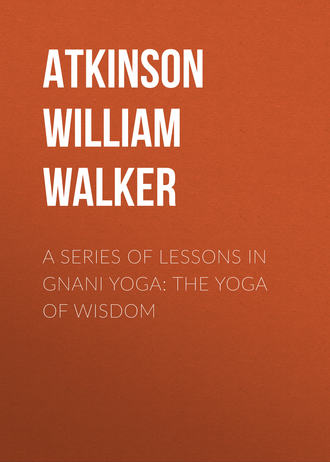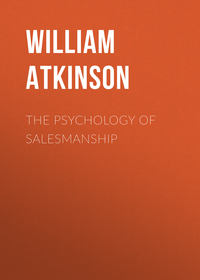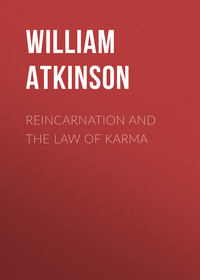 полная версия
полная версияA Series of Lessons in Gnani Yoga: The Yoga of Wisdom
In the Fourteen Lessons we quoted from Mr. Berry Benson, a writer in the Century Magazine for May, 1894. The quotation fits so beautifully into this place, that we venture to reproduce it here once more, with your permission. It reads as follows:
"A little boy went to school. He was very little. All that he knew he had drawn in with his mother's milk. His teacher (who was God) placed him in the lowest class, and gave him these lessons to learn: Thou shalt not kill. Thou shalt do no hurt to any living thing. Thou shalt not steal. So the man did not kill; but he was cruel, and he stole. At the end of the day (when his beard was gray—when the night was come) his teacher (who was God) said: Thou hast learned not to kill, but the other lessons thou hast not learned. Come back tomorrow.
"On the morrow he came back a little boy. And his teacher (who was God) put him in a class a little higher, and gave him these lessons to learn: Thou shalt do no hurt to any living thing. Thou shalt not steal. Thou shalt not cheat. So the man did no hurt to any living thing; but he stole and cheated. And at the end of the day (when his beard was gray—when the night was come) his teacher (who was God) said: Thou hast learned to be merciful. But the other lessons thou hast not learned. Come back tomorrow.
"Again, on the morrow, he came back, a little boy. And his teacher (who was God) put him in a class yet a little higher, and gave him these lessons to learn: Thou shalt not steal. Thou shalt not cheat. Thou shalt not covet. So the man did not steal; but he cheated and he coveted. And at the end of the day (when his beard was gray—when the night was come) his teacher (who was God) said: Thou hast learned not to steal. But the other lessons thou hast not learned. Come back, my child, tomorrow.
"This is what I have read in the faces of men and women, in the book of the world, and in the scroll of the heavens, which is writ with stars."
Under the operation of the Law of Karma every man is master of his own destiny—he rewards himself—he punishes himself—he builds, tears down and develops his character, always, however, under the brooding influence of the Absolute which is Love Infinite and which is constantly exerting the upward spiritual urge, which is drawing the soul toward its ultimate haven of rest. Man must, and does, work out his own salvation and destiny, but the upward urge is always there—never tiring—never despairing—knowing always that Ultimate Victory belongs to the soul.
Under the Law of Karma every action, yea, every thought as well, has its Karmic effect upon the future incarnations of the soul. And, not exactly in the nature of punishment or rewards, in the general acceptation of the term, but as the invariable operation of the Law of Cause and Effect. The thoughts of a person are like seeds which seek to press forward into growth, bud, blossom and fruit. Some spring into growth in this life, while others are carried over into future lives. The actions of this life may represent only the partial growth of the thought seed, and future lives may be necessary for its full blossoming and fruition. Of course, the individual who understands the Truth, and who has mentally divorced himself from the fruits of his actions—who has robbed material Desire of its vital force by seeing it as it is, and not as a part of his Real Self—his seed-thoughts do not spring into blossom and fruit in future lives, for he has killed their germ. The Yogis express this thought by the illustration of the baked-seeds. They show their pupils that while ordinary seeds sprout, blossom and bear fruit, still if one bakes the seeds their vitality is gone, and while they may serve the purposes of a nourishing meal still they can never cause sprout, blossom or fruit. Then the pupil is instructed in the nature of Desire, and shown how desires invariably spring into plant, blossom and fruit, the life of the person being the soil in which they flourish. But Desires understood, and set off from the Real Man, are akin to baked-seeds—they have been subjected to the heat of spiritual wisdom and are thus robbed of their vitality, and are unable to bear fruit. In this way the understood and mastered Desire bears no Karmic fruit of future action.
The Yogis teach that there are two great principles at work in the matter of Karmic Law affecting the conditions of rebirth. The first principle is that whereby the prevailing desires, aspirations, likes, and dislikes, loves and hates, attractions and repulsions, etc., press the soul into conditions in which these characteristics may have a favorable and congenial soil for development. The second principle is that which may be spoken of as the urge of the unfolding Spirit, which is always urging forward toward fuller expression, and the breaking down of confining sheaths, and which thus exerts a pressure upon the soul awaiting reincarnation which causes it to seek higher environments and conditions than its desires and aspiration, as well as its general characteristics, would demand. These two apparently conflicting (and yet actually harmonious) principles acting and reacting upon each other, determine the conditions of rebirth, and have a very material effect upon the Karmic Law. One's life is largely a conflict between these two forces, the one tending to hold the soul to the present conditions resulting from past lives, and the other ever at work seeking to uplift and elevate it to greater heights.
The desires and characteristics brought over from the past lives, of course, seek fuller expression and manifestation upon the lines of the past lives. These tendencies simply wish to be let alone and to grow according to their own laws of development and manifestation. But the unfolding Spirit, knowing that the soul's best interests are along the lines of spiritual unfoldment and growth, brings a steady pressure to bear, life after life, upon the soul, causing it to gradually kill out the lower desires and characteristics, and to develop qualities which tend to lead it upward instead of allowing it to remain on its present level, there to bring to blossom and fruit many low thoughts and desires. Absolute Justice reigns over the operations of the Law of Karma, but back of that and superior even to its might is found the Infinite Love of the absolute which tends to Redeem the race. It is that love that is back of all the upward tendencies of the soul, and which we all feel within our inner selves in our best moments. The light of the Spirit (Love) is ever there.
Our relationship to others in past lives has its effect upon the working of the Law of Karma. If in the past we have formed attachments for other individuals, either through love or hate; either by kindness or cruelty; these attachments manifest in our present life, for these persons are bound to us, and we to them, by the bonds of Karma, until the attachment is worn out. Such people will in the present life have certain relationships to us, the object of which is the working out of the problems in which we are mutually concerned, the adjustment of relationship, the "squaring up" of accounts, the development of both. We are apt to be placed in a position to receive hurts from those whom we have hurt in past lives, and this not through the idea of revenge, but by the inexorable working out of the Law of Compensation in Karmic adjustments. And when we are helped, comforted and receive favors from those who we helped in past lives, it is not merely a reward, but the operation of the same law of Justice. The person who hurts us in this way may have no desire to do so, and may even be distressed because he is used as an instrument in this way, but the Karmic Law places him in a position where he unwittingly and without desire acts so that you receive pain through him. Have you not felt yourselves hurting another, although you had no desire and intention of so doing, and, in fact, were sorely distressed because you could not prevent the pain? This Is the operation of Karma. Have you not found yourself placed where you unexpectedly were made the bestower of favors upon some almost unknown persons? This is Karma. The Wheel turns slowly, but it makes the complete circle.
Karma is the companion law to Metempsychosis. The two are inextricably connected, and their operations are closely interwoven. Constant and unvarying in operation, Karma manifests upon and in worlds, planets, races, nations, families and persons Everywhere in space is the great law in operation in some form. The so-called mechanical operations called Causation are as much a phase of Karma as is the highest phases manifest on the higher planes of life, far beyond our own. And through it all is ever the urge toward perfection—the upward movement of all life. The Yogi teachings regard the Universe as a mighty whole, and the Law of Karma as the one great law operating and manifesting through that whole.
How different is the workings of this mighty Law from the many ideas advanced by man to account for the happenings of life. Mere Chance is no explanation, for the careful thinker must inevitably come to the conclusion that in an Universe governed by law, there can be no room for Chance. And to suppose that all rewards and punishments are bestowed by a personal deity, in answer to prayers, supplications, good behavior, offerings, etc., is to fall back into the childhood stage of the race thought. The Yogis teach that the sorrow, suffering and affliction witnessed on all sides of us, as well as the joy, happiness and blessings also in evidence, are not caused by the will or whim of some capricious deity to reward his friends and punish his enemies—but by the working of an invariable Law which metes out to each his measure of good and ill according to his Karmic attachments and relationships.
Those who are suffering, and who see no cause for their pain, are apt to complain and rebel when they see others of no apparent merit enjoying the good things of life which have been denied their apparently more worthy brethren. The churches have no answer except "It is God's will," and that "the Divine motive must not be questioned." These answers seem like mockery, particularly when the idea of Divine Justice is associated with the teaching. There is no other answer compatible with Divine Justice other than the Law of Karma, which makes each person responsible for his or her happiness or misery. And there is nothing so stimulating to one as to know that he has within himself the means to create for himself newer and better conditions of life and environment. We are what we are to-day by reason of what we were in our yesterdays. We will be in our tomorrows that which we have started into operation to-day. As we sow in this life, so shall we reap in the next—we are now reaping that which we have sown in the past. St. Paul voiced a world truth when he said: "Brethren, be not deceived. God is not mocked, for whatsoever a man soweth that shall he also reap."
The teachers divide the operation of Karma into three general classes, as follows: (1) The Karmic manifestations which are now under way in our lives, producing results which are the effects of causes set into motion in our past lives. This is the most common form, and best known phase of Karmic manifestation.
(2) The Karma which we are now acquiring and storing up by reason of our actions, deeds, thoughts and mental and spiritual relationships. This stored up Karma will spring into operation in future lives, when the body and environments appropriate for its manifestation presents itself or is secured; or else when other Karma tending to restrict its operations is removed. But one does not necessarily have to wait until a future life in order to set into operation and manifestation the Karma of the present life. For there come times in which there being no obstructing Karma brought over from a past life, the present life Karma may begin to manifest.
(3) The Karma brought over from past incarnations, which is not able to manifest at the present time owing to the opposition presented by other Karma of an opposite nature, serves to hold the first in check. It is a well known physical law, which likewise manifests on the mental plane, that two opposing forces result in neutralization, that is, both of the forces are held in check. Of course, though, a more powerful Karma may manage to operate, while a weaker is held in check by it.
Not only have individuals their own Karma, but families, races, nations and worlds have their collective Karma. In the cases of races, if the race Karma generated in the past be favorable on the whole, the race flourishes and its influence widens. If on the contrary its collective Karma be bad, the race gradually disappears from the face of the earth, the souls constituting it separating according to their Karmic attractions, some going to this race and some to another. Nations are bound by their Karma, as any student of history may perceive if he studies closely the tides of national progress or decline.
The Karma of a nation is made up of the collective Karma of the individuals composing it, so far as their thoughts and acts have to do with the national spirit and acts. Nations as nations cease to exist, but the souls of the individuals composing them still live on and make their influence felt in new races, scenes and environments. The ancient Egyptians, Persians, Medes, Chaldeans, Romans, Grecians and many other ancient races have disappeared, but their reincarnating souls are with us to-day. The modern revival of Occultism is caused by an influx of the souls of these old peoples pouring in on the Western worlds.
The following quotation from The Secret Doctrine, that remarkable piece of occult literature, will be interesting at this point:
"Nor would the ways of Karma be inscrutable were men to work in union and harmony instead of disunion and strife. For our ignorance of those ways—which one portion of mankind calls the ways of Providence, dark and intricate, while another sees in them the action of blind fatalism, and a third simple Chance with neither gods nor devils to guide them—would surely disappear if we would but attribute all these to their correct cause. With right knowledge, or at any rate with a confident conviction that our neighbors will no more work harm to us than we would think of harming them, two-thirds of the world's evil would vanish into thin air. Were no man to hurt his brother, Karma-Nemesis would have neither cause to work for, nor weapons to act through … We cut these numerous windings in our destinies daily with our own hands, while we imagine that we are pursuing a track on the royal road of respectability and duty, and then complain of those ways being so intricate and so dark. We stand bewildered before the mystery of our own making and the riddles of life that we will not solve, and then accuse the great Sphinx of devouring us. But verily there is not an accident in our lives, not a misshapen day or a misfortune, that could not be traced back to our own doings in this or another life … Knowledge of Karma gives the conviction that if—
'Virtue in distress and vice in triumphMakes atheists of Mankind,'it is only because that mankind has ever shut its eyes to the great truth that man is himself his own savior as his own destroyer; that he need not accuse heaven, and the gods, fates and providence, of the apparent injustice that reigns in the midst of humanity. But let him rather remember that bit of Grecian wisdom which warns man to forbear accusing THAT which 'Just though mysterious, leads us on unerring Through ways unmarked from guilt to punishment'—which are now the ways and the high road on which move onward the great European nations. The Western Aryans have every nation and tribe like their eastern brethren of the fifth race, their Golden and their Iron ages, their period of comparative irresponsibility, or the Satya age of purity, while now several of them have reached their Iron Age, the Kali Yuga, an age black with horrors. This state will last … until we begin acting from within instead of ever following impulses from without. Until then the only palliative is union and harmony—a Brotherhood in actu and altruism not simply in name."
Edwin Arnold, in his wonderful poem, "The Light of Asia," which tells the story of the Buddha, explains the doctrine of Karma from the Buddhist standpoint. We feel that our students should become acquainted with this view, so beautifully expressed, and so we herewith quote the passages referred to:
"Karma—all that total of a soulWhich is the things it did, the thoughts it had,The 'self' it wove with woof of viewless timeCrossed on the warp invisible of acts.* * * * *"What hath been bringeth what shall be, and is,Worse—better—last for first and first for last;The angels in the heavens of gladness reapFruits of a holy past."The devils in the underworlds wear outDeeds that were wicked in an age gone by.Nothing endures: fair virtues waste with time,Foul sins grow purged thereby."Who toiled a slave may come anew a princeFor gentle worthiness and merit won;Who ruled a king may wander earth in ragsFor things done and undone."Before beginning, and without an end,As space eternal and as surety sure,Is fixed a Power divine which moves to good,Only its laws endure."It will not be contemned of any one:Who thwarts it loses, and who serves it gains;The hidden good it pays with peace and bliss,The hidden ill with pains."It seeth everywhere and marketh all:Do right—it recompenseth! Do one wrong—The equal retribution must be made,Though DHARMA tarry long."It knows not wrath nor pardon; utter-trueIts measures mete, its faultless balance weighs;Times are as naught, to-morrow it will judge,Or after many days."By this the slayer's knife did stab himself;The unjust judge hath lost his own defender;The false tongue dooms its lie; the creeping thiefAnd spoiler rob, to render."Such is the law which moves to righteousness,Which none at last can turn aside or stay;The heart of it is love, the end of itIs peace and consummation sweet. Obey!* * * * *"The books say well, my brothers! each man's lifeThe outcome of his former living is;The bygone wrongs bring forth sorrow and woes,The bygone right breeds bliss."That which ye sow ye reap. See yonder fields!The sesamum was sesamum, the cornWas corn. The silence and the darkness knew;So is a man's fate born."He cometh, reaper of the things he sowed,Sesamum, corn, so much cast in past birth;And so much weed and poison-stuff, which marHim and the aching earth."If he shall labor rightly, rooting these,And planting wholesome seedlings where they grew,Fruitful and fair and clean the ground shall be,And rich the harvest due."If he who liveth, learning whence woe springs,Endureth patiently, striving to payHis utmost debt for ancient evils doneIn love and truth always;If making none to lack, he thoroughly purgeThe lie and lust of self forth from his blood;Suffering all meekly, rendering for offenceNothing but grace and good:"If he shall day by day dwell merciful,Holy and just and kind and true; and rendDesire from where it clings with bleeding roots,Till love of life have end:"He—dying—leaveth as the sum of himA life-count closed, whose ills are dead and quit,Whose good is quick and mighty, far and near,So that fruits follow it."No need hath such to live as ye name life;That which began in him when he beganIs finished: he hath wrought the purpose throughOf what did make him man."Never shall yearnings torture him, nor sinsStain him, nor ache of earthly joys and woesInvade his safe eternal peace; nor deathsAnd lives recur. He goes"Unto NIRVANA. He is one with LifeYet lives not. He is blest, ceasing to be.OM, MANI PADME OM! the dewdrop slipsInto the shining sea!"This is the doctrine of the Karma. Learn!Only when all the dross of sin is quit,Only when life dies like a white flame spent.Death dies along with it."And so, friends, this is a brief account of the operations of the Law of Karma. The subject is one of such wide scope that the brief space at our disposal enables us to do little more than to call your attention to the existence of the Law, and some of its general workings. We advise our students to acquaint themselves thoroughly with what has been written on this subject by ourselves and others. In our first series of lessons—the "Fourteen Lessons"—the chapter or lesson on Spiritual Cause and Effect was devoted to the subject of Karma. We advise our students to re-study it. We also suggest that Mr. Sinnett's occult story entitled "Karma" gives its readers an excellent idea of the actual working of Karma in the everyday lives of people of our own times. We recommend the book to the consideration of our students. It is published at a popular price, and is well worth the consideration of every one interested in this wonderful subject of Reincarnation and Karma.
THE TWELFTH LESSON.
OCCULT MISCELLANY
In this, the last lesson of this series, we wish to call your attention to a variety of subjects, coming under the general head of the Yogi Philosophy, and yet apparently separated from one another. And so we have entitled this lesson "Occult Miscellany," inasmuch as it is made up of bits of information upon a variety of subjects all connected with the general teaching of the series. The lesson will consist of answers to a number of questions, asked by various students of the courses in Yogi Philosophy coming from our pen. While these answers, of necessity, must be brief, still we will endeavor to condense considerable information into each, so that read as a whole the lesson will give to our students a variety of information upon several important subjects.
QUESTION 1: "Are there any Brotherhoods of Advanced Occultists in existence, in harmony with the Yogi Teachings? And if so, what information can you give regarding them?"
ANSWER: Yes, there are a number of Occult Brotherhoods, of varying degrees of advancement, scattered through the various countries of the earth. These Brotherhoods agree in principle with the Yogi Teachings, although the methods of interpretation may vary somewhat. There is but one TRUTH, which becomes apparent to all deep students of Occultism, and therefore all true Occultists have a glimpse of that Truth, and upon this glimpse is founded their philosophies and teachings. These Occult Brotherhoods vary in their nature. In some, the members are grouped together in retired portions of the earth, dwelling in the community life. In others the headquarters are in the large cities of the earth, their membership being composed of residents of those cities, with outlying branches. Others have no meeting places, their work being managed from headquarters, their members being scattered all over the face of the earth, the communication being kept up by personal correspondence and privately printed and circulated literature. Admission to these true Occult Brotherhoods is difficult. They seek their members, not the members them. No amount of money, or influence, or energy can gain entrance to these societies. They seek to impart information and instruction only to those who are prepared to receive it—to those who have reached that stage of spiritual unfoldment that will enable them to grasp and assimilate the teachings of the Inner Circles. While this is true, it is also true that these Societies or Brotherhoods are engaged in disseminating Occult Knowledge, suited to the minds of the public, through various channels, and cloaked in various disguises of name, authority and style. Their idea is to gradually open the mind of the public to the great truths underlying and back of all of these various fragmentary teachings. And they recognize the fact that one mind may be reached in a certain way, and another mind in a second way, and so on. And, accordingly, they wrap their teachings in covers likely to attract the attention of various people, and to cause them to investigate the contents. But, under and back of all of these various teachings, is the great fundamental TRUTH. It has often been asked of us how one might distinguish the real Brotherhoods from the spurious ones which have assumed the name and general style of the true societies, for the purpose of exploiting the public, and making money from their interest in the great occult truths. Answering this, we would say that the true Occult Brotherhoods and Societies never sell their knowledge. It is given free as water to those who seek for it, and is never sold for money. The true adept would as soon think of selling his soul as selling Spiritual Knowledge for gain. While money plays its proper place in the world, and the laborer is worthy of his hire; and while the Masters recognize the propriety of the sale of books on Occultism (providing the price is reasonable and not in excess of the general market price of books) and while they also recognize the propriety of having people pay their part of the expenses of maintaining organizations, magazines, lecturers, instructors, etc., still the idea stops there—it does not extend to the selling of the Inner Secrets of Occultism for silver or gold. Therefore if you are solicited to become a member of any so-called Brotherhood or Occult Society for a consideration of money, you will know at once that the organization is not a true Occult Society, for it has violated one of the cardinal principles at the start. Remember the old occult maxim: "When the Pupil is ready, the Master appears"—and so it is with the Brotherhoods and Societies—if it is necessary for your growth, development, and attainment, to be connected with one of these organizations then, when the time comes—when you are ready—you will receive your call, and then will know for a certainty that those who call are the true messengers of Truth.









